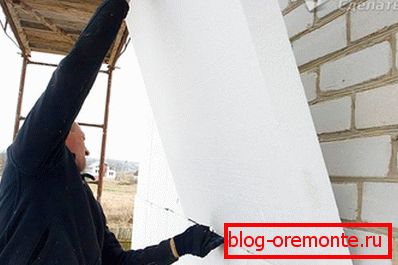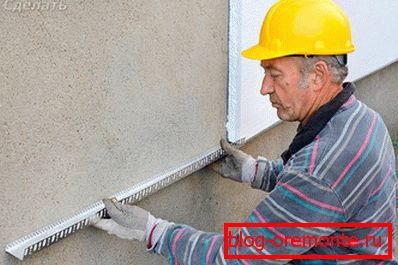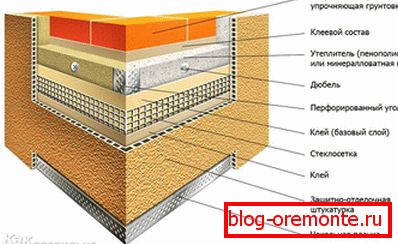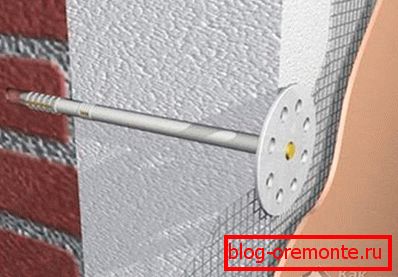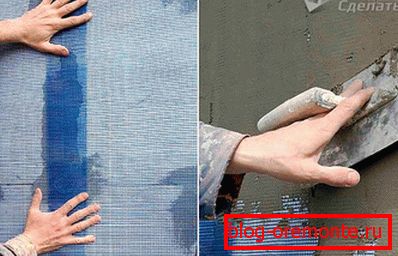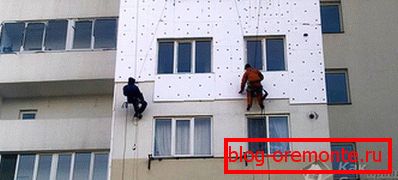Facade insulation with foam
When, during repairs, it is the turn of the facade insulation, it is inevitable that it is necessary to select a material suitable for this purpose. A modern construction market is able to offer a variety of options and it can be quite difficult to decide. However, it is worth knowing that there is material that is suitable in most cases. This material is foam. It has good performance and is quite simple to install. Nevertheless, the question of how to properly conduct the facade thermal insulation with foam plastic does not require any separate consideration. This will be discussed further.
Material description

It should be noted that the essence of thermal insulation is to protect the room from free air circulation. As a result of the work done, the cold will not penetrate inside the room, and the heat, on the contrary, will linger inside. Polyfoam, due to its structure, is just perfect for this purpose. It has the following properties:
- It has a very low weight, which means it will not exert additional load on the walls and the foundation.
- Does not require the use of special tools or technology, which reduces the cost of work.
- Immune to water.
- On the foam does not form mold.
- It is easy to work with material.
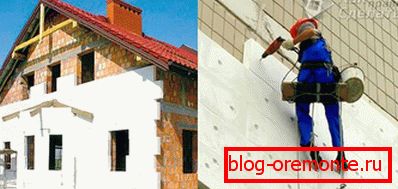
In addition, the material is quite common and relatively cheap, easy to install, which makes it accessible to a wide range of consumers. The listed qualities are characteristic for the material in question and make it possible to speak of it as a very acceptable option for most cases.
In order to fully understand how to insulate the facade of the house with foam plastic, it is important to know that the work is best divided into several separate stages and carry them out alternately. This approach will allow not to miss important moments and to carry out all the work at the proper level.
Training

Starting, as always, is better with preparation. Here we have in mind not only the purchase of the required amount of material and tools, but also the preparation of the surface of the walls of the facade for installation. The fact is that foam insulation requires compliance with a set of mandatory rules, one of which is the maximum flatness of the surface. If there are any bulges on the walls, such as slurry of mortar or protruding fasteners, then they must be removed. If there are defects of the surface of the reverse nature, that is, cracks or dents, then they must be puttied without fail. It is also important that the surfaces intended for the installation of insulation should be treated with a primer for better adhesion of the adhesive solution used during installation.
Installation of foam
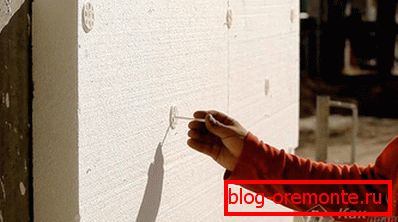
When all the preparatory stages of work are completed, you can proceed to the installation of insulation. It is best to do the work as follows:
- First, it is necessary to note the bottom line, along which the bottom edge of the first row of foam plates will be oriented. To do this, screw the screw on one side of the wall, and screw the second one on the other side of the wall on the same level with the first one, then, for clarity, connect them with a cord. Horizontalness must be controlled by level.
- Then, along this line, the starting L-plank is fastened, which will serve as a support for the lower and subsequent rows of the foam.
- Then you can begin to mount the foam plates themselves. To do this, they applied a special adhesive composition. It is prepared in accordance with the instructions and applied with a simple spatula.
- The bottom row of plates is installed on the starting plate. Starting from the edge of the wall, put the first element, next to it the second, and so on.
- The second row of plates is mounted on top of the second in a staggered manner, as is usually the case with brickwork. All subsequent rows fit the same way.
- For additional fixation of foam plates, special fasteners with wide caps, resembling umbrellas, are used. The number of these elements is calculated from the ratio: one umbrella per square meter of surface. To optimize the process, elements are driven in at the joints.
As described above, the entire surface area of the walls is trimmed. As can be seen from the above material, wall insulation with foam plates is of particular complexity. To cope with the work is quite possible on their own.
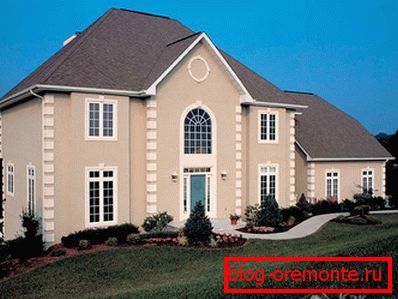
For greater clarity and ease of understanding of the essence of the work, you can additionally familiarize yourself with the relevant video on the subject in question.
Video
This video shows how to glue the foam, apply a reinforcing layer and plaster the warmed walls for painting:
A photo
